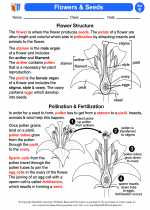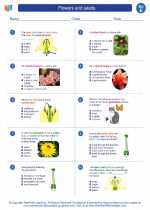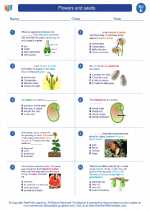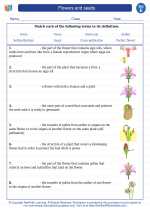Genotyping
Genotyping is the process of determining the genetic makeup of an organism by analyzing its DNA. This can involve identifying variations in specific genes or analyzing the entire genome.
Why is Genotyping Important?
Genotyping is important for several reasons:
- Medical Research: It can help researchers understand the genetic basis of diseases and develop targeted treatments.
- Personalized Medicine: Genotyping can help healthcare providers tailor treatments to an individual’s genetic profile.
- Forensic Science: It can be used to identify individuals based on their unique genetic markers.
- Agriculture: Genotyping is used to select and breed plants and animals with desirable genetic traits.
Methods of Genotyping
There are several methods used for genotyping, including:
- PCR (Polymerase Chain Reaction): This method amplifies specific regions of DNA for analysis.
- Sequencing: It involves determining the order of nucleotides in a DNA molecule.
- Microarrays: These are used to analyze large numbers of genetic markers simultaneously.
Applications of Genotyping
Genotyping has a wide range of applications, including:
- Medical Diagnosis: Identifying genetic variations associated with disease susceptibility.
- Pharmacogenomics: Determining how an individual’s genetic makeup influences their response to drugs.
- Population Genetics: Studying genetic variations within and between populations.
- Parentage Testing: Determining biological relationships between individuals.
Study Guide for Genotyping
Here are some key concepts to understand when studying genotyping:
- What is genotyping and why is it important?
- Methods of genotyping, including PCR, sequencing, and microarrays.
- Applications of genotyping in medicine, agriculture, and forensic science.
- The ethical and social implications of genotyping.
◂Science Worksheets and Study Guides Fifth Grade. Flowers and seeds
Study Guide Flowers and seeds
Flowers and seeds  Activity Lesson
Activity Lesson Flowers & Seeds
Flowers & Seeds  Worksheet/Answer key
Worksheet/Answer key Flowers and seeds
Flowers and seeds  Worksheet/Answer key
Worksheet/Answer key Flowers and seeds
Flowers and seeds  Worksheet/Answer key
Worksheet/Answer key Flowers and seeds
Flowers and seeds  Worksheet/Answer key
Worksheet/Answer key Flowers and seeds
Flowers and seeds  Vocabulary/Answer key
Vocabulary/Answer key Flowers and seeds
Flowers and seeds  Vocabulary/Answer key
Vocabulary/Answer key Flowers and seeds
Flowers and seeds 

 Activity Lesson
Activity Lesson
 Worksheet/Answer key
Worksheet/Answer key
 Worksheet/Answer key
Worksheet/Answer key
 Worksheet/Answer key
Worksheet/Answer key
 Worksheet/Answer key
Worksheet/Answer key
 Vocabulary/Answer key
Vocabulary/Answer key
 Vocabulary/Answer key
Vocabulary/Answer key

The resources above cover the following skills:
Life Science
All organisms have structures and systems with separate functions. Students can:
Develop and communicate an evidence-based scientific explanation of the role of different organs or structures that are important for an organism's survival - in both plants and animals